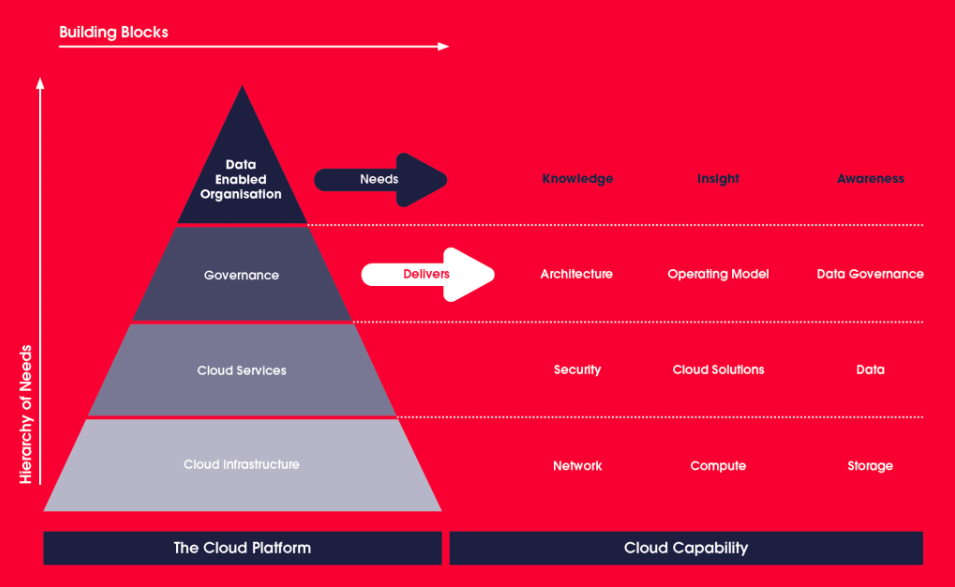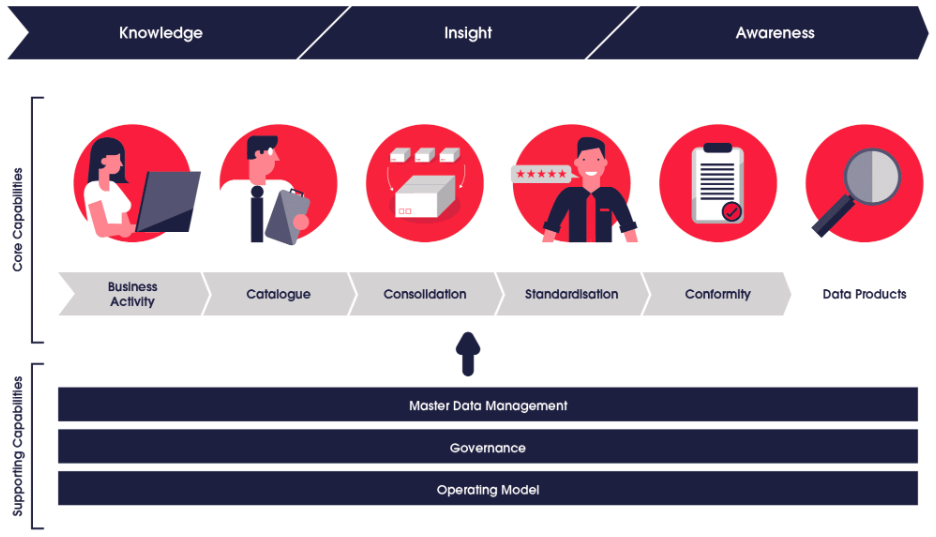In today’s digitised business landscape, the ability to collect, analyse, and manage data effectively can be the critical difference between a business’s success and failure. But what exactly enables businesses to harness the full potential of their data? Enter the customer data platform.
In this blog, we’ll discuss everything you need to know about data platforms, including their many benefits and how they can improve your business.
What is a Customer Data Platform?
A customer data platform is a centralised system for collecting, storing, and managing data from various sources. It uses innovative data engineering to leverage components such as data storage, processing, analysis, and integration. This lets organisations gather insights, make data-driven decisions, and ensure data quality and security.
What is Data Engineering?
Data engineering focuses on the practical aspects of data collection and data analysis. It comprises the design, development, and management of a central system that facilitates the collection, storage, and processing of large volumes of data.
Key aspects of data engineering include data collection, processing, performance optimisation, security, and seamless collaboration with other teams.
What are the Benefits of Data Engineering?
Data engineering offers a number of handy benefits that can significantly improve a business’s efficiency. The main notable benefits include:
- Improved Data Quality: Data engineers ensure that the data used for analysis is accurate and reliable through rigorous cleaning and transformation processes.
- Enhanced Efficiency: Automated data pipelines reduce the time and effort required to manage data, allowing for faster access to insights.
- Scalability: Data engineering solutions are designed to handle growing volumes of data, ensuring that systems can scale with the business.
- Better Decision-Making: Data engineering supports data-driven decision-making across the organisation by providing clean, integrated, and accessible data.
- Cost Savings: Efficient data management and storage solutions can reduce costs associated with data handling and infrastructure.
To learn more about further advantages, visit our dedicated guide: Why do you need a data platform?
What are Cloud-Native Platforms?
Cloud-native platforms are essential tools to help accelerate the execution of plans over the next 2-3 years. Improved access to cloud services enables the introduction of modern technologies with less operational burden than legacy systems, expediting and facilitating the creation of innovative business solutions.
Adopting cloud-native platforms provides the primary means for enterprises to execute their digital strategies, enabling business growth, customer retention, and efficiency. According to Gartner, cloud-native platforms will serve as the foundation for more than 95% of new digital initiatives by 2025, up from less than 30% in 2021.
What are the Key Components of a Data Platform?
There are several elements that collectively make up a successful digital data platform, including:
Data Access and Governance
In simple terms, a data platform enables data access, governance, delivery, and security. It brings together the technology needed to collect, transform, unify, and govern the data required to support users, applications, models, and data products.
Scalability and Security
To survive in today’s fast-moving market, an organisation’s data platform must be cost-effective, highly scalable, and secure from the outset.
It should enable data ingestion from multiple sources, including other data platforms, and be flexible enough to accommodate system changes in the future. What’s more, the architecture of your data platform must effectively support your business outcomes.
The Role of Data Governance
A successful data platform combines cloud capabilities with a robust data governance approach. Without data governance, issues like poor data quality and availability can persist, impacting current performance and hindering future growth opportunities.
Targeting Organisational Needs
A data platform must address an organisation’s specific needs. For example, a complex organisation with many data sources will need data conformity as a critical capability.
We see a data platform as a layered set of capabilities that build on each other. This enables organisations to realise value from high-quality data managed through governance processes, thereby empowering confident decision-making.
The Importance of Cloud-Native Solutions
We believe any modern-day data platform should be cloud-native.
Cloud-native platforms allow organisations to deliver scalable solutions without heavy reliance on managing the underlying infrastructure. These platforms are typically sourced from public cloud services (e.g., Amazon Web Services, Microsoft Azure, Google Cloud Platform) or created using software that structures a private cloud environment for added security and control.
What are the Core Capabilities of Cloud-Native Platforms?
Cloud-native platforms use core functionalities such as container management, infrastructure-as-code, and serverless functions while supporting continuous integration and delivery pipelines. These platforms can work with other cloud tools, SaaS tools, or on-premise applications, offering a speedier alternative to traditional on-premise solutions.
Enabling core capabilities (shown in the diagram below under the themes of knowledge, insight, and awareness) can help realise the true value of the cloud through the provision of all three layers— infrastructure, services, and governance.

As you seek to progress from knowledge to insight and awareness, your capabilities must evolve to meet your ambitions. The component parts of a data platform are shown below.
Data Journey

How to Build a Data Platform
The easiest way to visualise building a data platform is to think of it in terms of building a house.
When building a house (data platform), you don’t just start laying bricks (processing data). You need to know the room measurements (data subject areas), layout (data models), and adherence to building regulations (governance). This is how you design a data platform that delivers on your business goals.
For more expert knowledge on building a data platform, visit our blog: What are the challenges of building a data platform?
What are the Benefits of Cloud-Native Platforms?
As technology advances, we’ve seen a number of evolving benefits to opting for a Cloud-Native platform for your data strategy. These include:
- Reduced Total Cost of Ownership: Cloud data platform deployment and operation costs are generally lower than traditional on-premise implementations.
- Service Resiliency and Management: Cloud data platforms require less effort and complexity to meet spikes in demand while maintaining operations.
- Speed and Service Agility: Cloud-based platforms significantly reduce delivery timescales, leveraging reusable cloud blueprint architectures and components.
- Business Model Transformation/Optimisation: Cloud-native platforms support broader benefits beyond cost and speed, enabling business model transformation and optimisation.
With O’Reilly survey data showing that 77% of organisations were already cloud-native or pursuing a cloud-first strategy in 2021, the benefits are already being understood across industries.
Discover More Data Strategy Solutions with Oakland
Ready to transform your business with a modern cloud-based platform? Download our guide to delivering one, or contact us if you have any questions.
Want to stay up to date with the latest industry insights on all things data? Explore the Oakland blog today.


